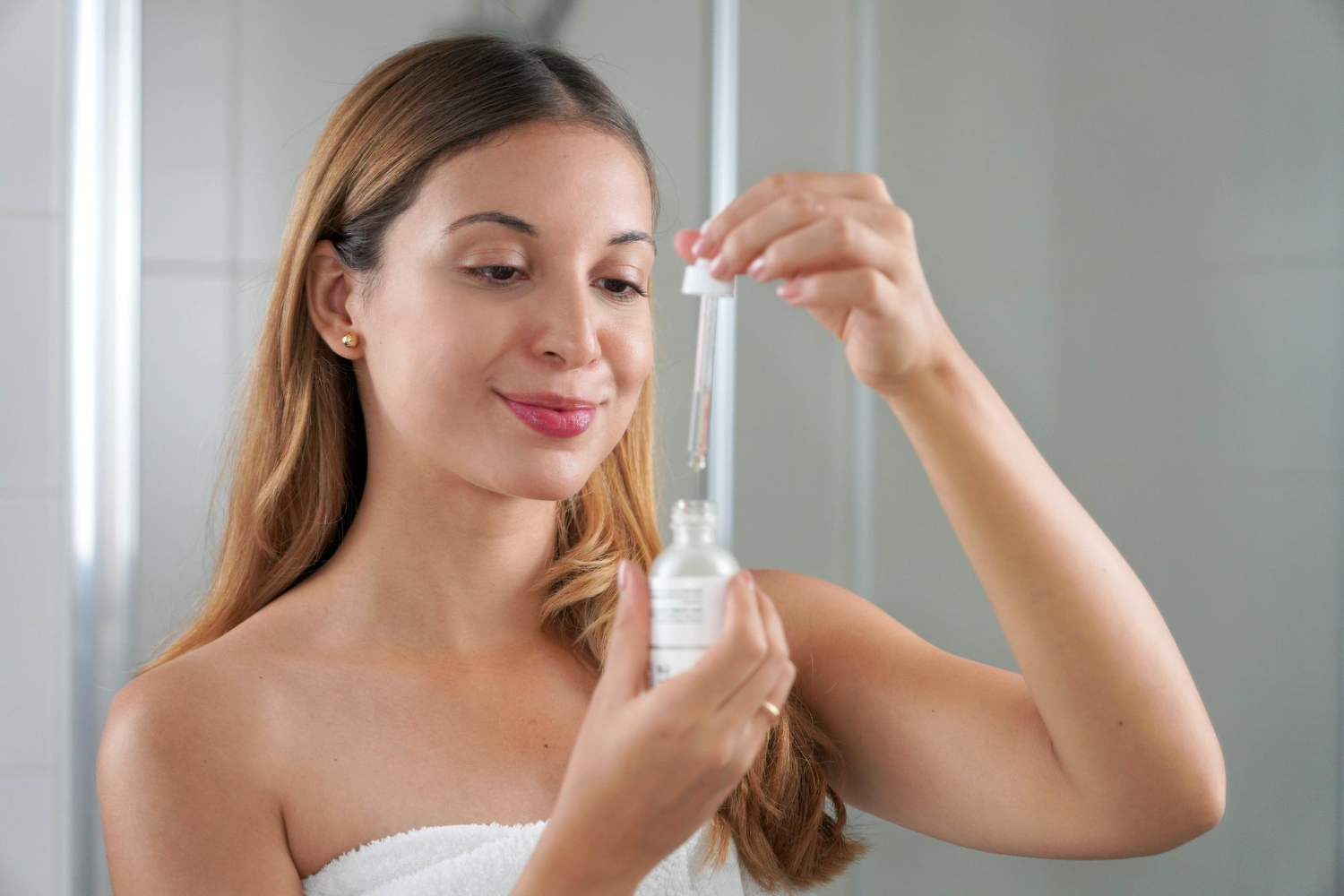Niacinamide serum has gained a strong following in the skincare community due to its impressive benefits. This ingredient stands out for its ability to improve skin tone, minimize the appearance of pores, and regulate oil production. Many users report brighter, smoother skin after incorporating niacinamide into their routines.
The versatility of niacinamide makes it suitable for various skin types and concerns, from acne to signs of aging. With options that often include additional nourishing ingredients, these serums are designed to enhance the skin’s health and appearance. The growing number of dermatologist recommendations further emphasizes its effectiveness, making it a staple in many skincare regimens.
As consumers become more aware of their skincare choices, niacinamide serum emerges as a key product that combines efficacy and gentle care. Understanding how this serum works and how to select the right one can empower individuals to achieve their desired skin goals.
The Science behind Niacinamide Serum
Niacinamide serum has gained attention for its effectiveness in skincare. Understanding its chemical composition and how it benefits the skin is essential in appreciating its role.
Chemical Composition
Niacinamide, also known as nicotinamide, is a form of vitamin B3. Its chemical structure allows it to penetrate the skin effectively. This hydrophilic molecule is water-soluble, making it suitable for various skincare products.
Niacinamide is often found in concentrations ranging from 2% to 10%. Higher concentrations can provide greater benefits, but it is important to choose a formulation suitable for one’s skin type.
Other ingredients, like zinc PCA, are sometimes added. Zinc can help regulate oil production, enhancing the serum’s overall effectiveness.
Dermatological Benefits
The dermatological benefits of niacinamide are significant and well-researched. It helps to soothe redness and reduce inflammation, making it ideal for sensitive skin.
Niacinamide also aids in controlling excess oil, which can be helpful for those prone to acne. By reducing blemishes and improving skin texture, it can lead to a more even skin tone.
Additionally, it promotes a brighter complexion. Regular use can reduce dullness and enhance the skin’s natural glow.
Mechanisms of Action
Niacinamide works through several mechanisms that contribute to its effectiveness. One of its primary roles involves cellular energy production. It is a precursor to important coenzymes, NAD+ and NADP+, which are vital for many cellular processes.
These coenzymes help to boost skin cell metabolism. Enhanced metabolism aids in the repair and renewal of skin cells, promoting healthier skin over time.
Niacinamide also supports the skin barrier by increasing ceramide synthesis. A stronger skin barrier helps retain moisture and protects against environmental aggressors, contributing to overall skin health.
Using Niacinamide Serum
Using niacinamide serum effectively enhances its benefits for the skin. The method of application, how often it’s used, and its compatibility with other skincare products are essential for optimal results.
Application Methods
To apply niacinamide serum, start with a clean face. After cleansing, take a pea-sized amount of serum and gently massage it onto the skin. Focus on areas of concern like enlarged pores or uneven texture.
For best absorption, users may opt to lightly pat the serum into the skin rather than rubbing it. This technique helps the serum penetrate better and maximize its benefits.
It is important to let the serum dry completely before applying other products. This waiting period ensures that the skin fully absorbs the niacinamide.
Frequency of Use
Niacinamide serum can typically be used once or twice a day. For those with sensitive skin, it is advisable to start with one application daily and observe how the skin reacts.
If the skin feels comfortable, users can gradually increase to twice daily.
Before adding niacinamide into a routine, it is smart to consult with a dermatologist, especially for individuals with specific skin conditions or concerns.
Compatibility with Other Skincare Products
Niacinamide is generally compatible with most skincare products. It mixes well with moisturizers and is often paired with ingredients like hyaluronic acid for extra hydration.
However, users should be cautious with certain combinations. For instance, combining niacinamide with vitamin C may reduce the effectiveness of both.
It is best to layer products in a specific order: serum first, followed by moisturizer. This sequence allows for better absorption and avoids overwhelming the skin.
To ensure a successful routine, do patch testing when introducing new products, especially if combining active ingredients.
Types of Niacinamide Serums
Niacinamide serums come in different types based on their concentrations and formulations. Understanding these variations helps in choosing the right product for specific skin needs.
Serum Concentrations
Niacinamide serums typically range from 2% to 10% concentration.
- Low Concentration (2-5%): These are suitable for sensitive skin. They provide hydration and improve skin texture without causing irritation.
- Medium Concentration (5-10%): These are effective for many skin types. They help with acne, enlarged pores, and uneven skin tone.
- High Concentration (10% and above): These serums are powerful and may work best for oily or acne-prone skin. Caution is advised for those with sensitive skin, as higher concentrations can cause irritation.
Selecting the right concentration is crucial for maximizing benefits while minimizing side effects.
Product Formulations
Niacinamide is often combined with other ingredients to enhance its effectiveness. Common product formulations include:
- Basic Serums: These typically contain niacinamide as the main ingredient for straightforward skin benefits.
- Hydrating Formulas: Ingredients like hyaluronic acid or glycerin are added for extra moisture.
- Brightening Blends: Some serums include vitamin C or licorice extract to improve skin radiance.
- Oil-Free Products: Formulations with zinc PCA can help control shine and manage acne.
Choosing a formulation depends on personal skin concerns and goals.
Choosing the Right Niacinamide Serum
Selecting the best niacinamide serum requires attention to skin type and brand reputation. Both factors can significantly impact the effectiveness of the product.
Identifying Skin Types
Understanding one’s skin type is crucial for choosing a serum. Different formulas cater to specific needs. Here are the common skin types to consider:
- Oily Skin: Look for serums with a lighter texture. Products containing 5% zinc PCA help control excess oil while providing hydration.
- Dry Skin: A serum with added hydrating ingredients is beneficial. A 2% niacinamide combined with propolis extract can hydrate and soothe dry areas.
- Combination Skin: A versatile serum that balances oil and hydration is ideal. Consider options that target multiple concerns without over-drying.
- Sensitive Skin: Seek out gentle formulations free from harsh additives. A low concentration of niacinamide (around 2%) is often recommended to reduce irritation.
Brand Reputation
Brand reputation affects product trustworthiness and effectiveness. Here are key points to evaluate:
- Dermatologist Recommendations: Look for products endorsed by skincare professionals. Brands like First Aid Beauty and SkinCeuticals often receive positive reviews for their formulations.
- Ingredient Transparency: Reliable brands provide clear information about their ingredients. Check for third-party testing and certifications.
- User Reviews: Pay attention to customer experiences. A serum with consistent positive feedback indicates better reliability.
- Cruelty-Free Status: Many consumers prefer brands that prioritize ethical practices. Vegan and cruelty-free certifications are a plus.
By focusing on skin type and brand reputation, one can make a more informed choice in selecting the right niacinamide serum.


 Trending:
Trending:











